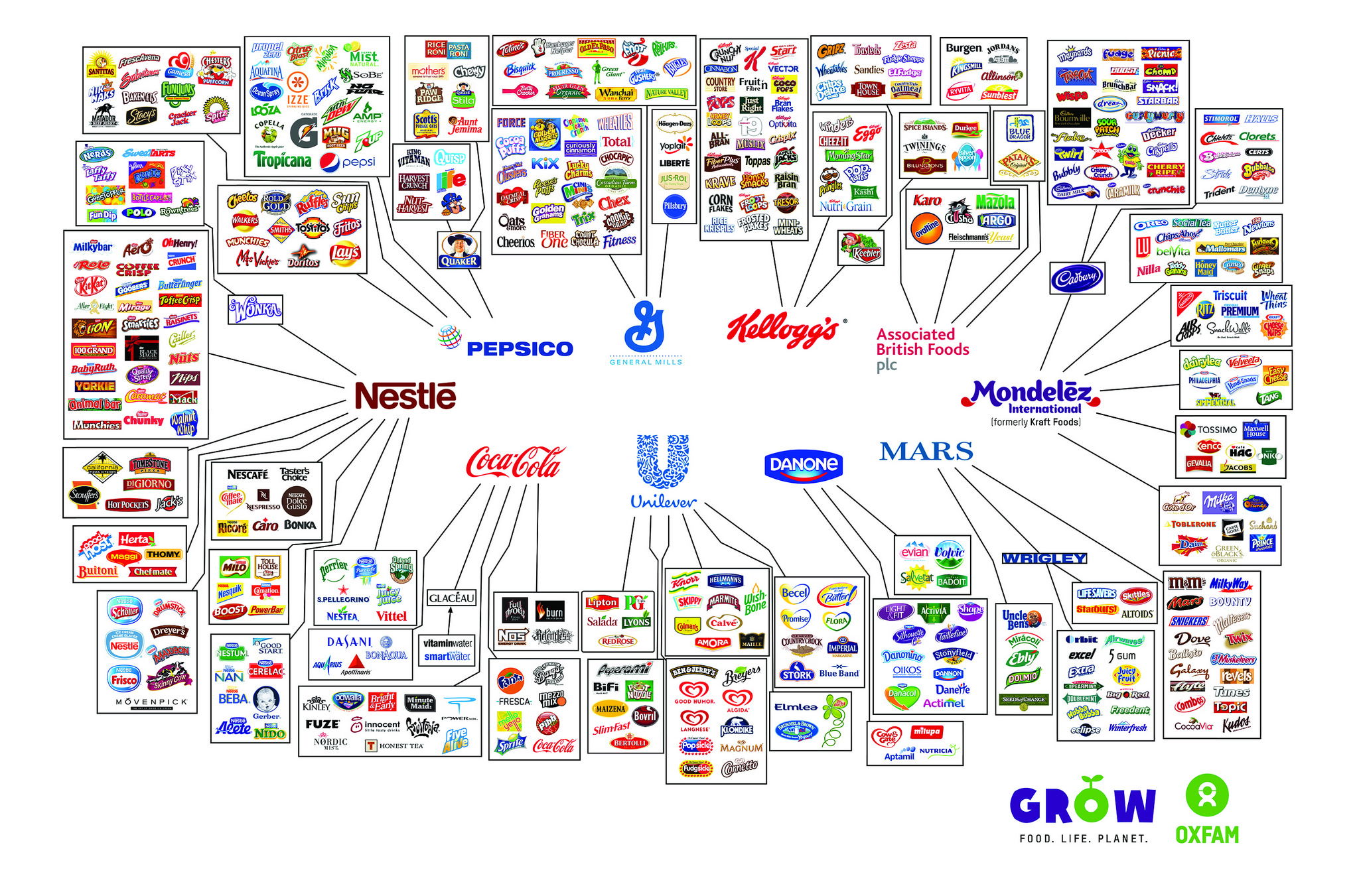
Government action required on food inflation. And time for workers to take on the 'loosely-regulated', stock-market gambling monopolies that supply our food.
The Workers Party has been tracking the yearly reports of multinational food companies and each year their profit margins are growing significantly. Although the supermarket shelves are filled with differently named products, only 10 companies control almost every large food and beverage brand in the world. These companies — Nestlé, PepsiCo, Coca-Cola, Unilever, Danone, General Mills, Kellogg’s, Mars, Associated British Foods, and Mondelez — each employ thousands and make billions of pounds in revenue every year. To take a local example, in 2023 the Coca Cola bottling factory in Northern Ireland made pre tax profits of £43.6 million, employing 482 workers (who actually made the profit for Coca-Cola).

Recent research has shown that companies in food and energy supply chains made abnormally high profits during the 2021-23 cost-of-living crisis. The researchers say that “part of these profits are attributable to speculation on the commodity markets, in which most food and energy companies engage” and another reason is monopolisation, “with a handful of international companies controlling the trading and transportation of commodities.” In addition, food companies are very loosely regulated and are not open to supplying regulators with data. It is time the government acted against these corporations and either impose a huge windfall tax on them or introduced pricing legislation to protect consumers. The Workers Party believes that the price of the food on workers’ tables should not be dependent on unregulated monopolies gambling on commodities markets.
More and more people are now dependent on food banks until payday because of food inflation. Research by the Trussel Trust shows that between 2019-and 2024 there was a 95% increase for adults and a 90% increase for children in parcels provided. The year 2023–24 saw record high use with 90,375 parcels and 2024–25 showed slight decline yet remained extremely high at 77,057 parcels. Child food parcel distribution and first-time food bank users remain at historic highs.
In addition to ruling the roost, the big companies have been price gouging on the backs of consumers for too long, and their excuses for price hikes have never been credible. People are now dependent on food banks before pay day. Working class people spend their money in local communities. For every pound a worker earns, 60 pence of it is spent locally. Workers do not hoard money in banks or offshore accounts or gamble it on stock exchanges; they spend it in the local economy.
It is time to regulate both prices and profit margins it is time to tax the greedy to feed the needy. In fact, it's time to completely change the way that food is grown, packaged, and delivered.
August 5th 2025
